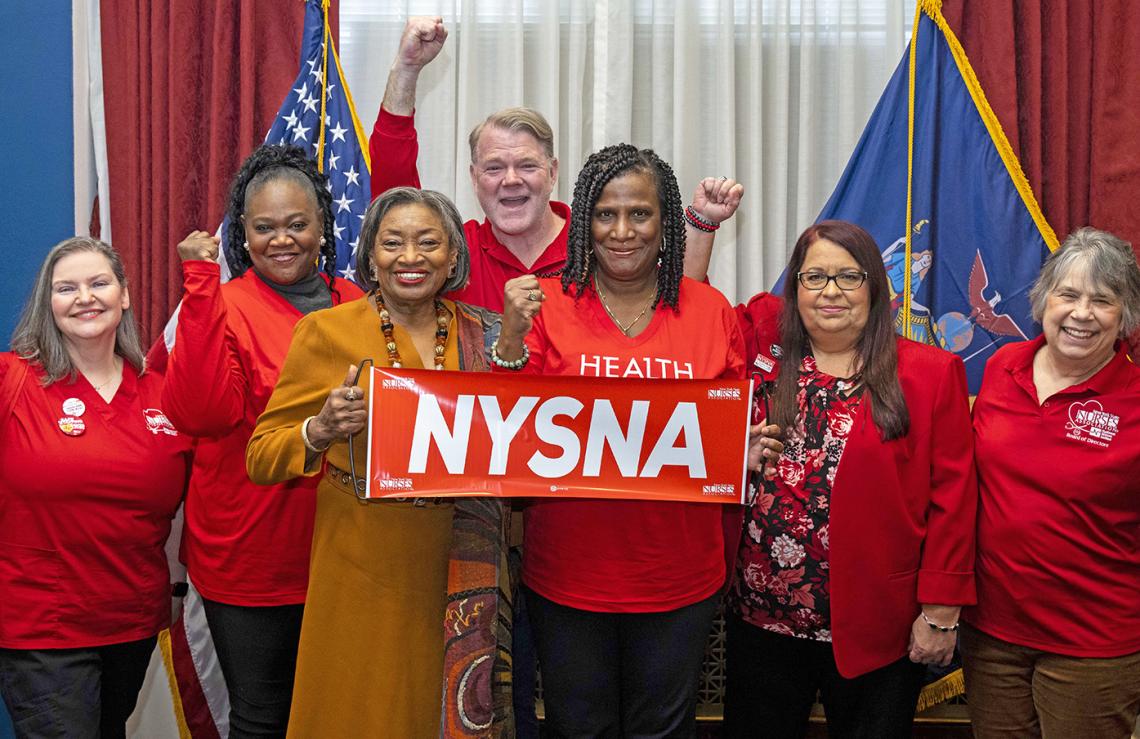New York's Black Political Leaders Make History

This Black History Month is a good time to recognize the ongoing struggle for civil rights as well as celebrate the Black political leaders who are continuing the struggle and are making history.
Voting rights have been making the headlines — and not just because this is an important election year. The John Lewis Voting Rights Advancement Act was reintroduced in Congress in March, timed for the 59th anniversary of the Voting Rights Act. It is also the anniversary of “Bloody Sunday,” so named for the day that Black protesters, including civil rights activist John Lewis, were beaten in Selma, Alabama, for marching for the right to vote.
1965 and the televised sight of that horrific day may seem like ancient history, but history has a way of repeating itself. As Senate Judiciary Committee Chairman Dick Durbin said during introduction of the bill in the Senate, “Last year alone state legislators in 14 states enacted 17 laws that made it harder for people, particularly people of color, to vote. Today we are reintroducing the John Lewis Voting Rights Advancement Act because we know how crucial, how critical it is, for us to do our part to expand access to the ballot box and end voter discrimination.”1
Modern Day Attacks on Voting Rights
Attacks against voting rights are not just happening in state legislatures. Last fall, Rep. Bryan Steil of Wisconsin introduced federal legislation that would add voting restrictions.2 In the last 10 years, the Supreme Court has weakened voting rights and anti-discrimination protections in two separate rulings.3
The right to vote is an elemental civil right and not something to take for granted. Those who came before us fought for and even died so that we could exercise our right to vote. Expanding and protecting the right to vote protects our democracy. Protecting our democracy requires remembering our history as well as our continual vigilance and advocacy.
Lewis went from being a civil rights activist to a member of Congress, holding his strong moral convictions and his seat representing his Georgia district until his death in 2020.4 His advice stayed largely the same through his life and career:
“Do not get lost in a sea of despair. Be hopeful, be optimistic. Our struggle is not the struggle of a day, a week, a month, or a year, it is the struggle of a lifetime. Never, ever be afraid to make some noise and get in good trouble, necessary trouble.”
New York’s Black Elected Officials Take the Lead
Despite attempts to limit the voice and voting power of Black Americans around the country, here in New York, our elected leaders are successfully protecting and expanding the right to vote. Several of New York’s Black elected officials are following in Lewis’ footsteps of making “good trouble.” They are taking the lead and making history themselves.
Attorney General Letitia James
When James was elected as New York’s attorney general in 2018, she became the first woman of color to hold statewide office in New York and the first woman to be elected attorney general. She has distinguished herself as “the people’s lawyer,” defending reproductive rights, pay equity, voting rights and more.
When New York implemented voting reforms to expand access to absentee ballots, ensure minor technical mistakes on ballots wouldn’t invalidate votes, and update the ballot counting process and timeline, James successfully defended expanded voting rights from judicial attacks.
Rep. Jamaal Bowman
Bowman has served New York’s 16th Congressional District, encompassing parts of Westchester County and the Bronx since 2021. He is the first Black member of Congress for this district. A long-term educator and advocate, he was arrested alongside other activists for protesting for voting rights outside the U.S. Capitol in 2022. The protest unfolded after the U.S. Senate failed to pass The John Lewis Voting Rights Advancement Act or change filibuster rules to allow for legislation with majority support to pass.5
Senate Majority Leader Andrea Stewart-Cousins
Stewart-Cousins was the first woman in New York history to be elected to lead the Senate Democratic Conference and first woman to become Senate majority leader. Since becoming majority leader in 2019, Stewart-Cousins has focused on protecting New Yorkers’ rights, including the right to vote.
She led the successful charge to pass progressive voting legislation in 2022, saying: “The John R. Lewis Voting Rights Act of New York and the additional voting rights legislation being passed, one of which I am proud to sponsor, will expand and codify voter protections, empower citizens at the ballot box, and promote accountability among elected officials.”6
Sources
1 https://www.graydc.com/2024/03/03/senate-re-introduces-john-lewis-voting-rights-advancement-act/
2 https://www.npr.org/2023/09/19/ 1199617896/john-lewis-voting-rights-act-terri-sewell
3 https://www.brennancenter.org/our-work/research-reports/john-lewis-voting-rights-advancement-act
4 https://www.nytimes.com/2020/07/17/us/john-lewis-dead.html
5 https://www.cnn.com/2022/01/20/politics/jamaal-bowman-arrested/index.html
6 https://www.nysenate.gov/newsroom/press-releases/2022/senate-passes-john-r-lewis-voting-rights-act-new-york